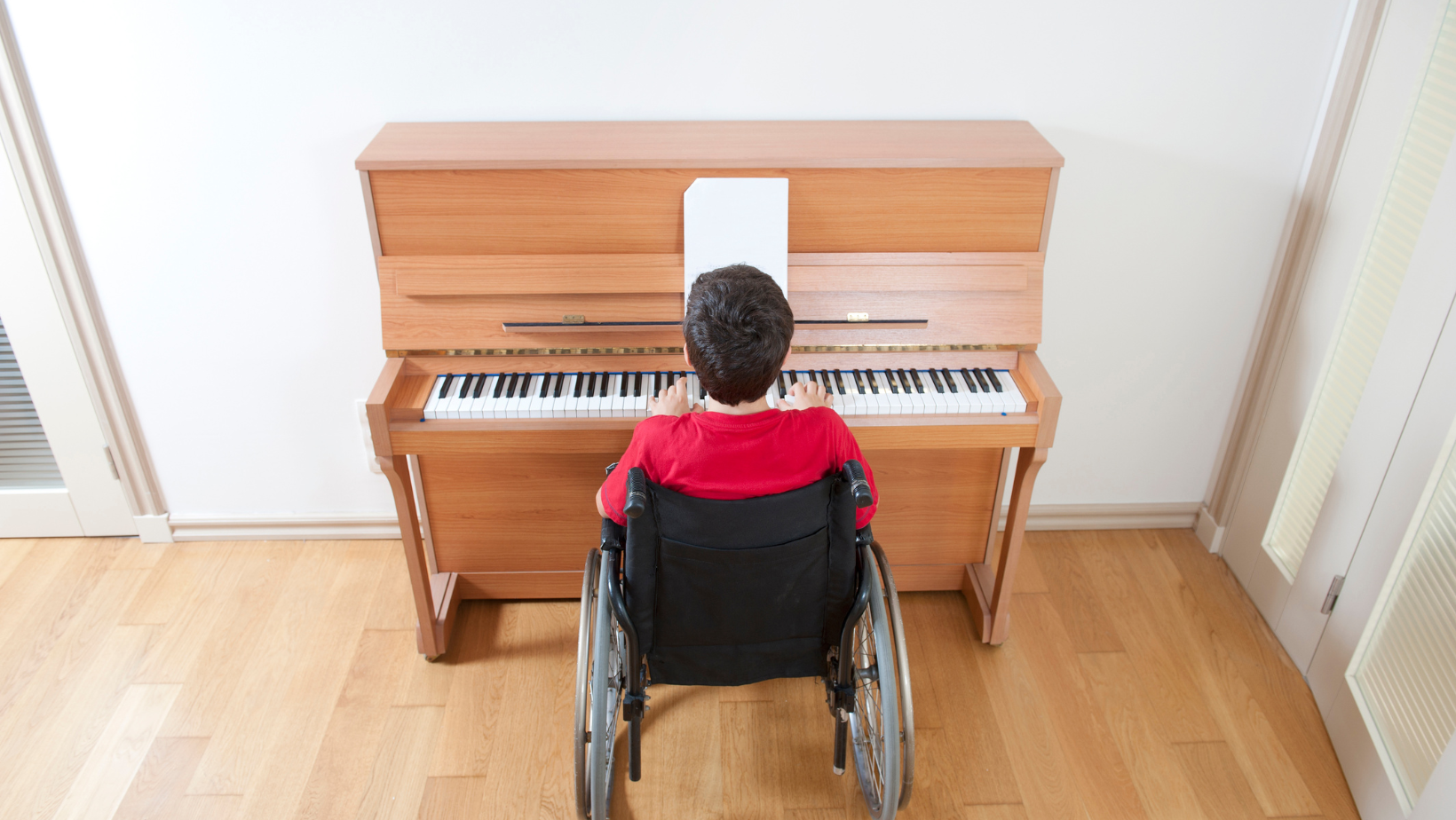The power of music is undeniable. It’s a universal language that transcends boundaries, evoking emotions and memories, and even healing the soul.
Stay tuned as we delve deeper into the fascinating world of music therapy programs, exploring their benefits, applications, and the science behind why they work. This is a symphony you won’t want to miss.
Music Therapy Programs
Music therapy branches into several types of programs, tailored to suit diverse treatment needs. Below, we explore two popular types: Hospital-based and Community Music Therapy programs.
Hospital-Based Programs
 Hospital-Based Music Therapy programs primarily aim to lessen patients’ pain and stress levels in a clinical setting. They offer support during acute illness and aid in rehabilitation. For instance, music therapists interact with newborns in Neonatal Intensive Care Units (NICUs), using rhythm and melody to regulate babies’ sleep patterns and feeding cues. In oncology units, therapists implement music interventions to manage discomfort and anxiety during chemotherapy.
Hospital-Based Music Therapy programs primarily aim to lessen patients’ pain and stress levels in a clinical setting. They offer support during acute illness and aid in rehabilitation. For instance, music therapists interact with newborns in Neonatal Intensive Care Units (NICUs), using rhythm and melody to regulate babies’ sleep patterns and feeding cues. In oncology units, therapists implement music interventions to manage discomfort and anxiety during chemotherapy.
Infrastructure and staffing are important assets of a Hospital-Based Music Therapy program. Departments ordinarily have a team of certified and professional music therapists, and ensure supporting resources such as private rooms and specialized musical instruments are readily available for therapy sessions.
Community Music Therapy
 Community Music Therapy programs, on the other hand, extend beyond hospitals and institutions, aiming to foster social integration and impact broader societal barriers. They serve individuals across all demographics and often target marginalized groups, or those facing cultural and societal difficulties.
Community Music Therapy programs, on the other hand, extend beyond hospitals and institutions, aiming to foster social integration and impact broader societal barriers. They serve individuals across all demographics and often target marginalized groups, or those facing cultural and societal difficulties.
These programs utilize music-making as a medium to bridge the gap among participants and help them engage more confidently within their communities. For instance, they often promote group activities such as community choirs, drumming circles, or songwriting workshops that encourage self-expression and collaboration.
Implementing Music Therapy Programs
Implementation of music therapy programs, whether hospital-based or community-based, presents a unique set of challenges and requires specific strategies for successful integration. This part of the article sheds light on these elements.
Challenges in Implementation
Implementing music therapy programs often meets with numerous obstacles. Critical among these is funding, as music therapy initiatives generally require substantial financial backing for resources such as musical instruments, trained personnel, and operational costs. Additionally, acceptance of music therapy as a legitimate form of treatment can prove a stumbling block. Despite empirical evidence demonstrating its effectiveness, some sections of the medical and general communities maintain skepticism.
Strategies for Successful Integration
 Tackling the challenges surrounding the implementation of music therapy programs requires a range of thoughtful, proactive strategies. Securing a steady flow of funds, for instance, hinges on amassing a strong base of supporters. This can be achieved through educational campaigns clarifying the benefits of music therapy, public presentations, and fundraising events. Secondly, increasing exposure and credibility to the practice can be done by aligning the therapy program with well-respected, recognized healthcare establishments, which could involve a partnership or affiliation. Scheduling issues, on the other hand, call for the flexibility of music therapists and facilities in adjusting therapy sessions to be compatible with existing hospital timings or community activities. Furthermore, dealing with staffing needs warrants investing in ongoing professional development for therapists and establishing a supportive work environment to encourage job retention. Through these strategies, music therapy programs can overcome implementation hurdles and successfully integrate into mainstream healthcare.
Tackling the challenges surrounding the implementation of music therapy programs requires a range of thoughtful, proactive strategies. Securing a steady flow of funds, for instance, hinges on amassing a strong base of supporters. This can be achieved through educational campaigns clarifying the benefits of music therapy, public presentations, and fundraising events. Secondly, increasing exposure and credibility to the practice can be done by aligning the therapy program with well-respected, recognized healthcare establishments, which could involve a partnership or affiliation. Scheduling issues, on the other hand, call for the flexibility of music therapists and facilities in adjusting therapy sessions to be compatible with existing hospital timings or community activities. Furthermore, dealing with staffing needs warrants investing in ongoing professional development for therapists and establishing a supportive work environment to encourage job retention. Through these strategies, music therapy programs can overcome implementation hurdles and successfully integrate into mainstream healthcare.
Music therapy’s effectiveness is undeniable. It’s a powerful tool for addressing diverse health needs from autism to depression, with remarkable benefits for physical and mental well-being. Hospital-Based and Community Music Therapy programs have shown significant potential in pain reduction and fostering social integration. Yet, the path to integrating music therapy into mainstream healthcare isn’t without obstacles. Funding, acceptance, logistics, and staff training pose significant challenges. However, it’s possible to navigate these hurdles with the right strategies. Securing funding through educational campaigns, aligning with healthcare establishments, addressing scheduling conflicts, and investing in staff development are key. Through these approaches, music therapy can overcome the barriers and become an integral part of healthcare, providing its unique healing touch to those who need it most.

